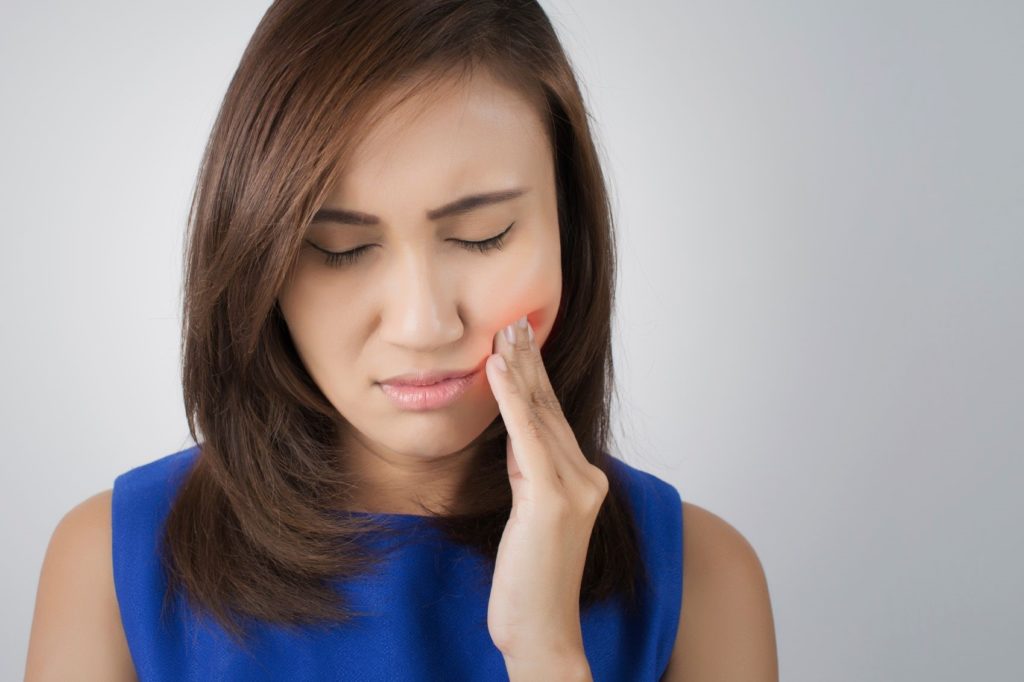
Teeth sensitivity is a common condition that affects millions of Americans. According to a study done by the American Dental Association, 12% of adults experience frequent sensitivity to their teeth or gums. Not only does it cause pain and discomfort in the mouth, but it can make it difficult to enjoy a wide variety of different foods and beverages. Tooth pain is never fun, and it can make you wonder: Is this a sign of a more serious, underlying problem? Your dentist can help you determine why you have sensitive teeth and what you can do about it.
Why Are My Teeth Temperature Sensitive?
There are several reasons you may be experiencing tooth sensitivity to hot and cold temperatures. Dentin exposure is the main cause of this type of sensitivity. Dentin is a layer of material that lies immediately underneath the enamel of the tooth. When the protective enamel of your teeth wears down or the gums covering the root of the tooth recede, the dentin is exposed causing pain and sensitivity.
The nerve ending within the center of the tooth is highly sensitive to pain, so when the protective layers of the teeth wear away, temperature sensitivity is likely to follow.
Is Temperature Sensitivity an Emergency?
While temperature sensitivity is not an emergency on its own, it could be a sign that something more serious is going on and the need for urgent dental care is in your future. Contact your emergency dentist so they can help you determine the cause.
Here are a few underlying reasons why you may be experiencing temperature sensitivity:
- Cavities
- Cracked or chipped teeth
- Worn fillings
- Gum disease
It’s important to talk to your dentist to rule out these possibilities, especially if you have new, worsening, or extreme sensitivity.
What Can I Do to Reduce My Temperature Sensitivity?
Here are some ways to manage the pain of sensitive teeth:
- Change your toothpaste: Next time you are at the store, look out for a toothpaste made specifically for sensitive teeth. Toothpastes that are intended to whiten teeth often increase tooth sensitivity because over time, they can damage the tooth enamel. It may take several weeks to experience noticeable improvement after you’ve switched toothpastes.
- Change your toothbrush: Hard-bristled toothbrushes can wear down the surface of the teeth, especially with vigorous brushing. Using a softer bristled toothbrush is easier on the enamel and the gums.
- Watch what you eat: Foods with higher acidity levels can aggravate sensitive teeth. Some of these include tomatoes, lemons, and oranges.
- Rule out other causes: Other things that can increase sensitivity are teeth grinding, gingivitis, plaque buildup, and whitening treatments.
Sensitive teeth are a pain, but you don’t have to put up with them. Don’t hesitate to talk to your dentist about your sensitive teeth. Together, you can get to the root of the problem and come up with a solution.
About the Practice
At NeoSmile Dental Care, Dr. Farrell and Dr. Patel are here to provide you and your family with healthy, happy smiles in Spring House, PA. They are adamant about giving patients the care they need when they need it. If you’ve been experiencing extreme dental pain, they are ready to help at a moment’s notice and can schedule a same-day or after-hours appointment if necessary. For more information, visit their website or call (214) 643-5220.


